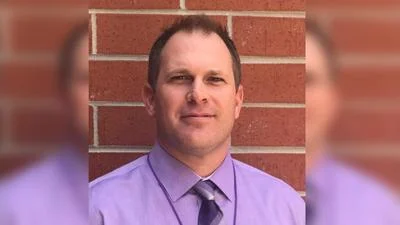Sen. Sue Rezin joined American Nuclear Society CEO Craig Piercy, Ph.D. candidate Ejeong Baik and IBEW Utility Dept. Director Donnie Colston. | facebook.com/statesenatorsuerezin
Sen. Sue Rezin joined American Nuclear Society CEO Craig Piercy, Ph.D. candidate Ejeong Baik and IBEW Utility Dept. Director Donnie Colston. | facebook.com/statesenatorsuerezin
Illinois state senator Sue Rezin was among the panelist offering their perspective on the successes and challenges facing the nuclear power industry in the effort to preserve the existing plants in the United States.
Rezin joined Ejeong Baik, a Ph.D. candidate from the Department of Energy Resources Engineering at Stanford, and Donnie Colston, the director of the Utility Department for the International Brotherhood of Electrical Workers. Craig Piercy, the Executive Director and CEO of the American Nuclear Society served as the moderator.
Nearly a dozen nuclear power plants in the U.S. have been retired in the last decade. With clean energy concerns growing, the panelists examined the value of existing nuclear power plants.
Illinois Gov. J.B. Pritzer signed the Climate and Equitable Jobs Act into law in September granting $694 million in assistance to three Exelon nuclear power plants headed for closure. Exelon had announced plans to prematurely retire plants in Byron and Dresden and warned that plants in Braidwood and LaSalle were in consideration of being retired without assistance from the state.
Rezin was one of three Senate Republicans to vote for the bill, S.B. 2408. Her district includes three of the state’s six nuclear plants.
“For nearly two years, thousands of Illinois workers employed by our state’s nuclear power plants dreaded the possibility of losing their jobs and being forced to leave the communities that they love and the lives that they have built,” Rezin said of the bill's signing. “Communities like the ones in my district feared what would happen once their plants went offline and they lost the vital tax revenues that [the plants] provide for their schools and their critical services. During the last two years, stakeholders and legislators on both sides of the aisle spent countless hours fighting to prevent those fears from becoming a reality. With the governor’s signature on Senate Bill 2408, we ensure that our state’s nuclear fleet will stay online and thousands of jobs and the tax revenues that they provide won’t be lost.”
In mid-September, Rezin posted this on her Facebook page: “This morning the governor signed Senate Bill 2408, which ensures that our state’s nuclear fleet stays online and preserves thousands of jobs that they provide to our local communities,” Rezin posted on Facebook of the state’s new clean energy law. “It’s official.”




 Alerts Sign-up
Alerts Sign-up